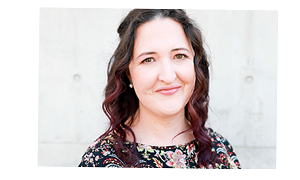“My dad used to say to me, be good to work experience kids because one day one of them will become your boss, and he was right. Because the boss of Nine radio, Tom Malone did work experience with me, I was 21, he was 18, and now I get called to his office!”
Ben Fordham on 2GB Breakfast, Monday May 15.
Many of you also probably know that Ben did work experience with Alan Jones. Much of his breakfast team was gathered via work experience too, for example Ben’s EP James Willis started with Ray Hadley.
The inspiration behind Ben’s commentary was a Sydney Morning Herald article (subscription required) which sampled 100 NSW public school and found only one in four full-time year 9 and 10 students are doing work experience, with those numbers dropping even lower during the pandemic. What I hadn’t realised is that compulsory work experience has been gone for two decades.
My own two sons, in year 11 and 9, haven’t had this opportunity, though they would like to. To their school’s credit, my older son in Year 10 was offered talks by people in various professions (including his mum) about what their roles entail. As a direct result he focused his year 11 studies towards becoming an architect, something that wasn’t on any of our radars previously.
I did my compulsory work experience at a specialist preschool and hairdressing salon. When I did my Music Business Certificate IV through TAFE NSW, we also had to find a place to work for a week.
In those days I listened to Hans and Kayley on 2WS. They did a music trivia quiz early in the mornings and I rang in to answer. They were surprised that I would know so much about classic hits at my relatively tender age. I sucked up all my courage and asked if I could join them for work experience.
For a week I got up at 3am to join Hans Torv and Kaylee Harris and then Glenn Daniel and Greg Henricks in the newsroom. It was exhilarating, fun, exhausting and everything I’d hoped radio would be. Hans wrote me a lovely letter of recommendation afterwards that I still have somewhere. From then on, I knew that’s what I wanted to do.
I’m working with interns at the University of Canberra currently on a podcast project. Because the topic of the podcast is aimed at people a generation younger than myself, I find their thoughts, opinions and the speed at which they work essential to the process.
As aspiring journalists, interning, which in this instance is conveniently onsite at the Uni, is required for graduating. AFTRS offers work placements and internships which often result in job offers, as the station / production house knows already what they are getting. The podcast and radio industries are well suited for work experience because the risks and overheads are low.
Fordham also talked this morning about an organisation called StudyWorkGrow who advertise work experience opportunities to youths so that they can “try before they buy”, so to speak. Last year they offered 268 opportunities. So far, in 2023, they’ve offered just 14. One such role, in a law firm, had so many enquiries that it had to be removed from the site.
The demand is still there and those that apply are doing so because they desperately want the opportunity.
But we in the industry, who should be guiding and enthusing the future generation, are so time poor that we fear letting a new person loose to learn via making mistakes costs us. Many an intern basically shadows someone else, bored out of their brain, without any input of their own.
I don’t know what the answer is here.
How many of you started in this industry via work experience or still offer intern opportunities in your workplace?
How many of you would be willing, for a week, to take on an audio enthusiast, put your own work deadlines to one side, and gift them your time?
And what can we do to create a way that this works for our industry as a whole?


